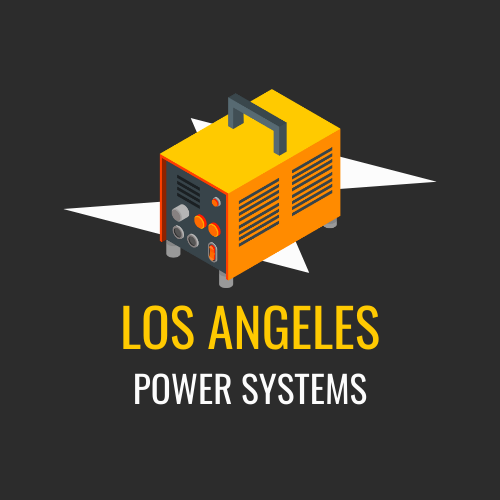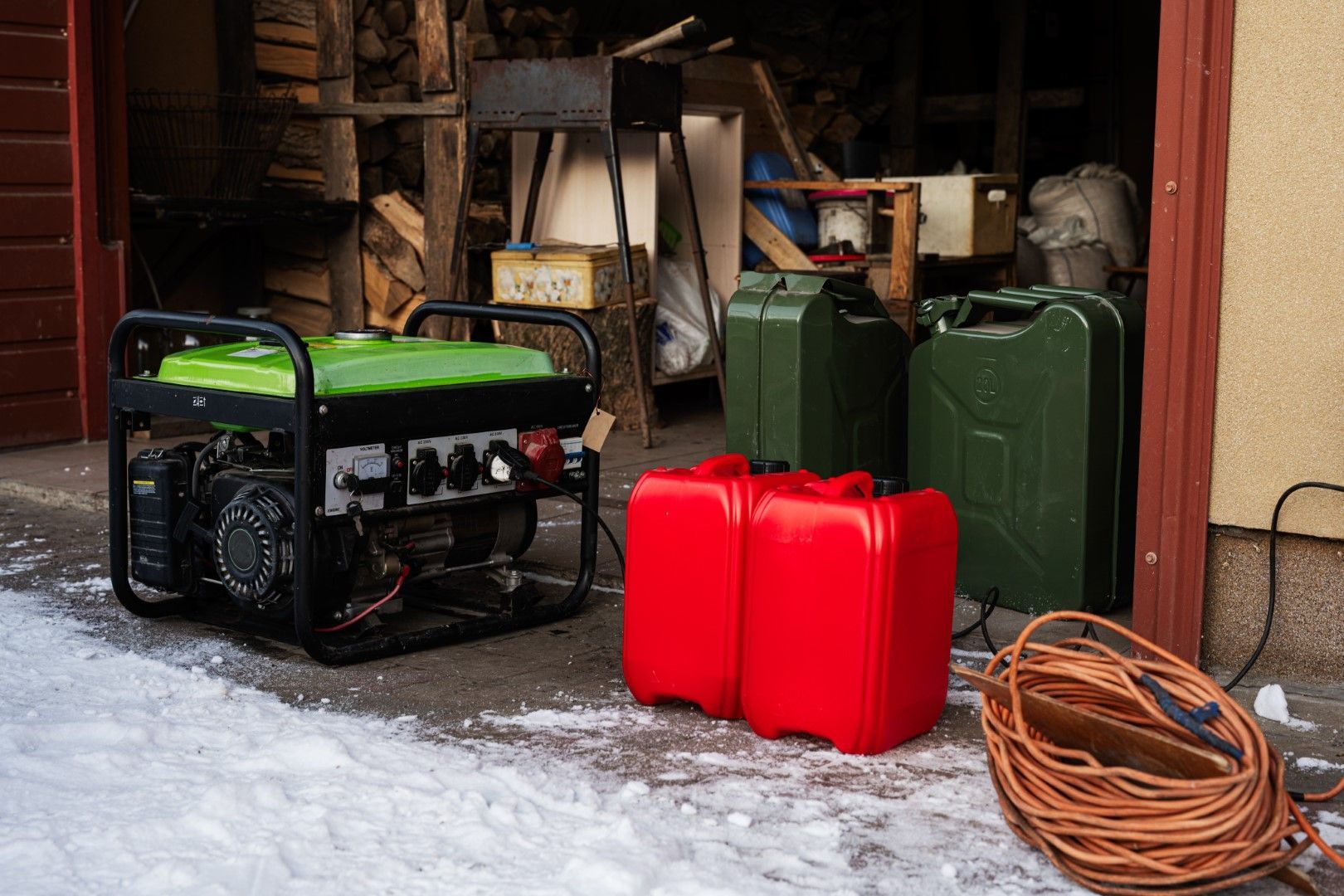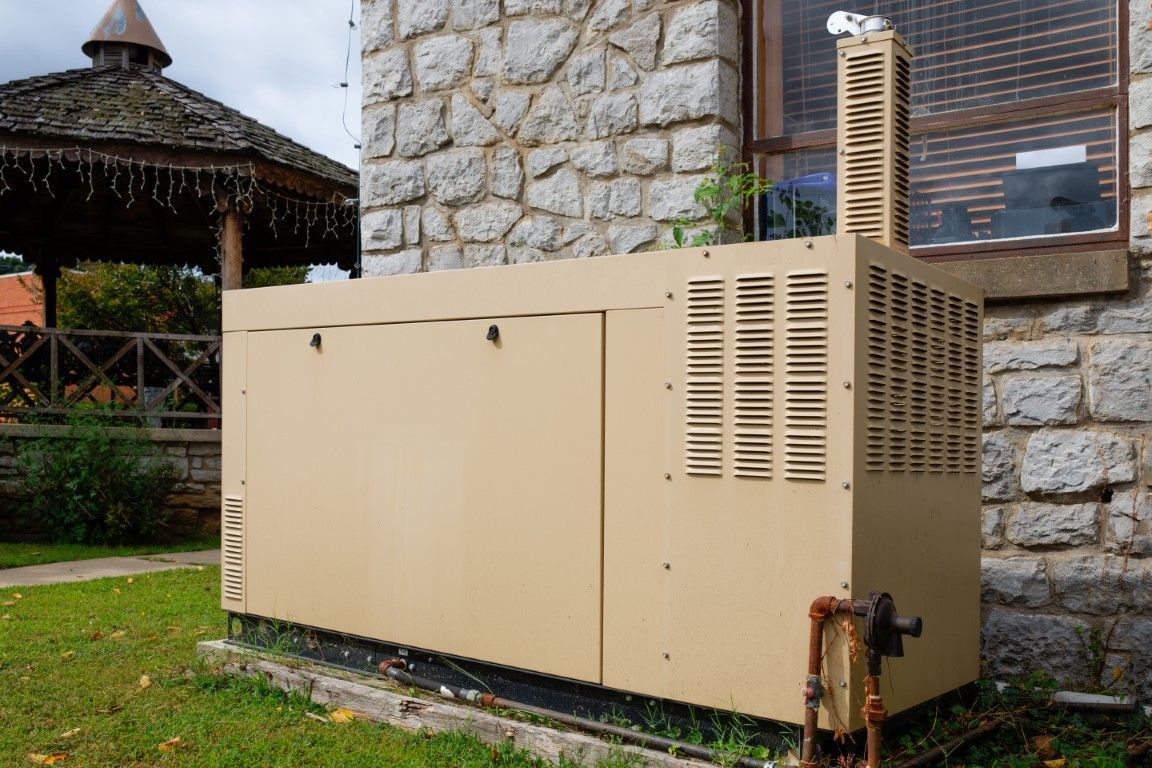
Commercial Generators in Los Angeles CA
In Los Angeles, CA, our company specializes in providing reliable standby whole-house generators to ensure uninterrupted power for homes. With years of expertise, we're committed to keeping homes powered and protected during outages. Our generators automatically detect power loss and switch on, seamlessly providing backup power to your entire house.
How standby whole-house generators work by being connected to your home's electrical system and fueled by natural gas or propane. When there's a power outage, the generator automatically activates, ensuring continuous power supply. Hire us for peace of mind during emergencies!
Standby Generator
Standby generators are large machines that sit outside your business and automatically turn on when the power goes out. They’re connected to your building’s electrical system, so they start up on their own when they’re needed.
Advantages
- Automatic Operation: They start up automatically during a power outage, so you don’t have to do anything.
- Reliable Power: Great for keeping everything in your business running smoothly.
- Permanent Installation: They’re set up outside, so they don’t take up space inside.
Disadvantages
- Higher Cost: They can be more expensive to buy and install.
- Space Needed: They require a dedicated space outside your building.
Portable Generators
They’re used for providing power to specific areas or tools, and you have to set them up and connect them manually when needed.
Advantages
- Flexibility: You can move them to wherever you need power.
- Lower Cost: Generally cheaper than standby generators.
- Easy Setup:
Simple to set up and use.

We will get back to you as soon as possible.
Please try again later.
Disadvantages
- Manual Operation: You have to start and connect them manually when the power goes out.
- Limited Power: They usually don’t provide as much power as standby generators.
- Noise: Can be quite loud while running.
Inverter Generators
Inverter generators are a type of portable generator known for being quieter and more efficient. They produce clean power that is safe for sensitive electronics like computers and phones.
Advantages
- Quiet Operation: They run much more quietly compared to other generators.
- Efficient: Use fuel more efficiently, which can save you money.
- Clean Power: Safe for sensitive equipment.
Disadvantages
- Cost: Can be more expensive than regular portable generators.
- Power Output: May not provide enough power for larger commercial needs.
Each type of generator has its own strengths and weaknesses. By understanding these options, you can choose the right type of commercial generator to keep your business running smoothly during any power outage.
Things to Think About When Picking a Commercial Generator
When choosing a
Commercial Generator in Los Angeles, CA for your business, it’s important to think about several key factors to ensure you get the right generator for your needs. Here’s what to consider:

-
Power Requirements
Calculating Power Needs: First, you need to figure out how much power your business requires. Different types of businesses have different needs. For example, a restaurant might need more power for kitchen equipment, while an office might need enough to keep computers and lights running.
Assessing Essential Equipment: Identify the most important equipment and systems that must stay on during a power outage. This could include things like computers, refrigeration units, or heating systems. Make sure your generator can handle the total power needed for these essentials.
-
Fuel Type
Options: Commercial generators can run on various fuels, including diesel, natural gas, propane, and gasoline. Each type of fuel has its pros and cons:
Diesel: Often used for larger generators because it’s powerful and reliable.
Natural Gas: Convenient for businesses with a natural gas supply.
Propane: Good for locations where propane is readily available and easy to store.
Gasoline: Common for smaller generators but may require more frequent refueling.
Availability and Cost: Consider how easy it is to get the fuel for your generator and how much it will cost. In some areas, certain fuels might be cheaper or more readily available than others.
-
Installation Requirements
Professional Installation vs. DIY: Deciding whether to install the generator yourself or hire a professional is important. Professional installation is usually recommended for commercial generators to ensure everything is set up correctly and safely.
Space and Location: Think about where you’ll place the generator. It needs enough space for ventilation and to be close to the equipment it will power. Also, consider accessibility for maintenance and refueling.
Compliance with Local Regulations: Make sure your generator installation meets local regulations and codes. This might include getting permits and following specific safety rules.
-
Maintenance and Service
Regular maintenance: is key to keeping your generator running well. This might include checking the oil, changing filters, and ensuring the fuel system is working properly.
Availability of Service Providers: Find out if there are local companies that can provide maintenance and repair services for your generator. It’s a good idea to choose a generator that’s supported by reliable service providers in your area.
By considering these factors, you’ll be able to choose a **Commercial Generator** that fits your business’s needs and ensures you’re prepared for any power outages. These installers are known for their quality work and customer satisfaction, making them great choices for your generator needs.
Finding a Reliable Installer for Your Generator
When you’re ready to get a generator for your home or business, finding a good installer is really important. Here’s what to think about:

-
Importance of Professional Installation
Ensuring Safety and Compliance: Professional installation is key to making sure your generator is set up safely. A trained installer will follow all the necessary safety guidelines and local codes. This helps prevent dangerous issues like electrical fires or improper fuel handling.
-
Proper Sizing and Setup
An expert will also make sure your generator is the right size for your needs. They will install it correctly to ensure it runs smoothly and efficiently. Whether you’re using Commercial Generators, Portable Generators, Electric Generators, Propane Generators, or Solar Generators, correct installation is crucial for reliable performance.
-
Checking Credentials and Experience
Checking Credentials and Experience: Look for installers who have the right licenses and certifications. It’s also important that they have experience working with the type of generator you have. For example, installing a Commercial Generator might require different skills compared to setting up a Solar Generator.
Let's Connect!
Hire us for reliable whole-house generator solutions tailored to your needs. With our expertise, you can ensure seamless backup power and peace of mind for your home. Contact us today to discuss your options and secure your power supply.